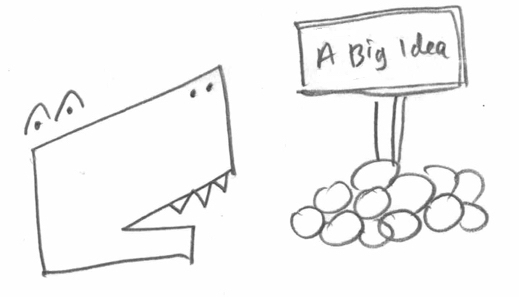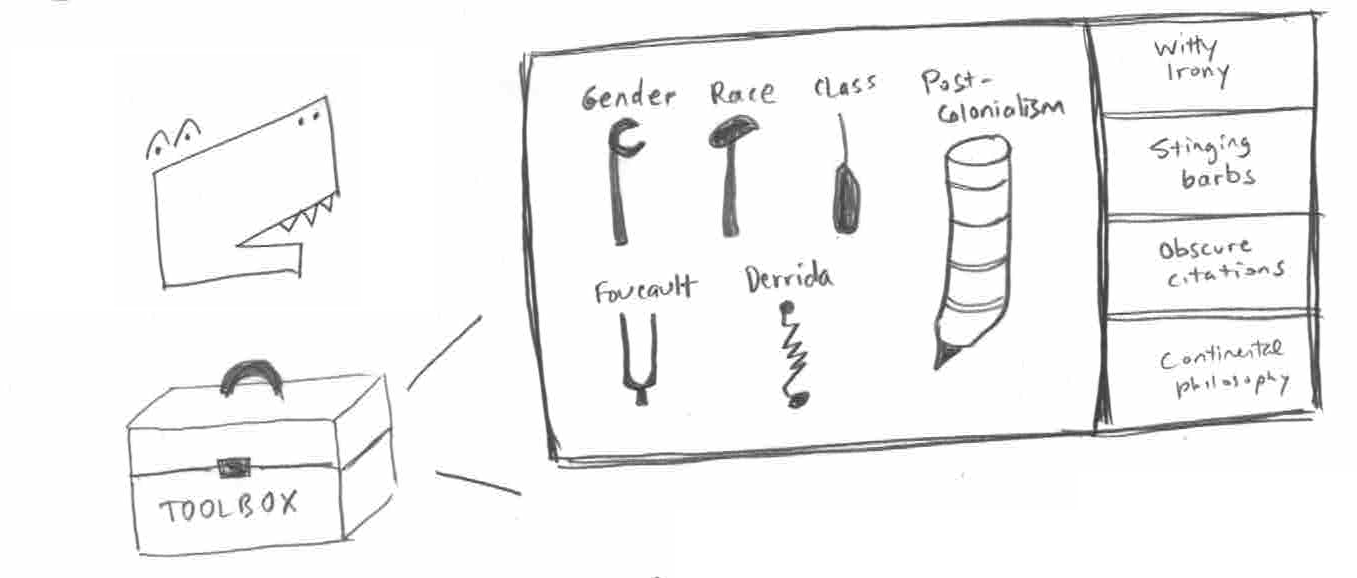
Demolishers seek to break down Systems. We turn our tools on all Ideologies, all Worldviews, and any other Big Ideas we are told we should conform to. We rip out the rugs of certainty, destabilize the comfortable, and reveal contingency everywhere. Demolishers don’t posit any concrete new Thing or System. Rather, we like to make things more complex, more messy, more contingent, more uncertain. By smashing things to pieces, we live to “complicate our understanding.”

When Demolishers encounter a Big Concept or Grand Narrative, we pull out various critical tools. We can demonstrate that it is too imprecise, too general, a misunderstanding, an illusion, a product of social or cultural or economic factors, or a Trojan horse for harmful ideology. Demolishers collect more and more tools of the trade that we can use in order to smash more and more things into smaller and smaller pieces.

A good Demolisher eventually learns to turn her tools on herself. (She learns to enjoy pointing out, for example, that she has the luxury to be a Demolisher only because of her position of privilege).

Demolition is a vitally important practice. It is the leveler of Isms big and small. It is the pulverizer of Parties and Identities. It is the smasher of Religions and Worldviews. It leaves nothing unquestioned or unchallenged, and for this work we must be grateful to Demolishers everywhere!

Demolishers often struggle to learn that different modes of thought are appropriate for different social contexts, and we are generally seen as curmudgeons by Ordinary People. But we can’t help ourselves. Our training—and therefore our reflex—is to Demolish, even when it’s not polite to do so. (For example, my best friend gifts me a Buddha statue for the front lawn, and I respond with a lecture about Orientalism, neo-colonialism, and cultural appropriation.)

Having learned to continually Demolish the World, ourselves, and everything else we come in contact with, all rigorous Demolishers are in danger of being trapped in the Valley of Nihilism. Before falling in Meaninglessness, it’s important that Demolishers metamorphose into Fabricators.

Fabrication is the opposite of Demolition. Having flattened the World, we now gather up the rubble to build anew. We experiment with assembling new constructs, concepts, interpretive tools, models, metaphors, or stories out of the dust. Our new constructs are useful for understanding specific problems, but they are contingent, unstable, partial, biased, and fragile. Fabricators create meaningful fictions, not new Unassailable Truths.

Fabricators can never forget that our own creations in turn need to be Demolished. In fact, we must turn our tools of Demolition on our own Fabrications as soon as we’ve built them. If we aren’t oscillating between Fabrication and Demolition like this, then we’re becoming another Authoritative Pundit filling up the airwaves with new Mythologies, Religions, and Isms.

So, when Fabricators put our ideas out into the world, we don’t write a book with a title like 12 Big Answers to the Meaning of Life. Ours is not a Great Book that will once and for all correctly explain How Everything Fits Together. Our book is instead called Ten Smallish Ideas that Might Be Helpful to Navigate Some Specific Problems. We offer a useful perspective that we invite you to explore, if you so choose.

Why do we oscillate between Demolishing everything and offering these contingent Fabrications? It’s certainly not for fame, for public accolades, or for the Big Bucks. We do Demolition because we know that, at its core, it is a tool of wisdom can free people from the invisible powers of Systems, Worldviews, and Ideologies. And we know that, at the end of the day, Fabrication is a tool of compassion that creates new possibilities, alternatives, and work-arounds. Using both together, we act to liberate ourselves and others both to think critically and to dream up a better world for us all.